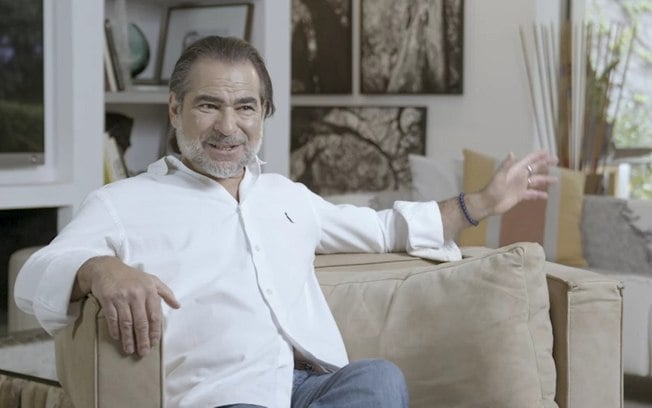President Luiz Inácio Lula da Silva already has plenty of concerns at the head of a government that spares no effort to try to recover his shaken popularity. In the confusing scenario he faces at home – with “allies” demanding increasingly greater and more expensive favors in exchange for his support – he should not devote a minute of his time to matters that could make his mission even more complex. And this mission is to govern Brazil and fulfill the promises made to voters in the 2022 campaign.
But it is precisely this – that is, wasting his precious time and bringing himself unnecessary difficulties – that Lula has done by using part of his political capital (which was once much more solid than it is today) to act as a guarantor for the dictator of Venezuela, his friend Nicolás Maduro. Lula wants it because he wants to convince the world that, contrary to all evidence, Venezuela does not live under a bloodthirsty dictatorship. And that, despite all the arbitrariness of Maduro and his people, lives under the fullest of democracies.
The problem is that, by following this path, Lula ends up giving his opponents, especially in Congress, more arguments to attack him. The first question in the face of this posture is: why does the president do this? The second: do he and Brazil have to gain from this?
Asking to leave
The answer to the first question is relatively simple: the president acts this way because that’s how he acts. His government follows a diplomatic line guided by ideological sympathies and not by the pragmatism that has guided the actions of Itamaraty since the time of the Baron of Rio Branco. In the name of this, he and his diplomatic advisors prefer to see power in Venezuela in the hands of the “Bolivarian” ally than someone whom the people want to see in power despite not following the left’s playbook.
The president may even say no, but this is what is clear in the face of all the moves made by his government since January 2023 in relation to the “Bolivarian” dictatorship. Lula seems to have taken on the task of saving the reputation of the Venezuelan government and, against all evidence, insists on treating as a democracy what the whole world sees as a dictatorship, of the lowest possible kind. As long as he is in the Planalto, Brazil’s interests will be subordinated to those of the government of the neighboring country. Period. Lula will only stop doing this on the day he is no longer president. Or on the day that Maduro, for the good of humanity, is thrown out or asked to leave the Miraflores Palace.
The answer to the second question is a little more complex. Neither Lula nor Brazil, at first glance, have anything positive to take from this proximity to Venezuela. Except, perhaps, the possibility of creating a smokescreen to divert attention from the problems that accumulate inside the home, waiting for a solution that seems increasingly difficult. And all the government’s problems can be summed up in a single word: money.
The president and his aides in the economic area are trying to find a way to continue financing a wasteful public machine like the Brazilian one. They want to obtain resources to fulfill the promises made in 2022. They need to finance emergency actions such as those that will be required by the reconstruction of Rio Grande do Sul, destroyed by the floods of last May. They need money to satisfy the limitless appetite of “allied” parliamentarians. All this without allowing the fiscal situation to deteriorate further, make the public debt unsustainable, bring back galloping inflation and generate even bigger problems tomorrow or the day after.
The government seems to be moving to achieve this miracle. Last week, Finance Minister Fernando Haddad contradicted his colleagues on the Esplanade by announcing a cut of R$ 15 billion in this year’s budget – an indispensable measure to avoid overshooting fiscal targets. For many public finance experts, this cut will not be enough to stop the bleeding. But, at least, it shows that Haddad does not think only about creating taxes to achieve the promised and increasingly distant zero deficit.
All the actions of Lula’s team, focused on the short, medium and long term, seem to revolve around this dilemma: how to get money to keep expenses high? The impression one has, when looking at the measures that await action from the Planalto, is that Lula will not be able to solve a problem without creating another one later on. And that this, whether we like it or not, will end up increasing the friction in the relationship between the Executive and a Legislative that only works under the effect of the release of funds – and does not even want to hear about cutting expenses to achieve fiscal balance.
Although the smokescreen provided by the decision to turn the “Bolivarian” problems into a Brazilian issue helps to divert attention from the pressure for more resources that the government has been receiving every day, this does not seem to be enough to justify all the support given to Maduro. The fact is that Lula insists on calling for himself, for his government and for Brazil the mission of endorsing the result of an “election” that was already decided long before it was called by the dictator. Willing not to abandon the tyrant from whom the world’s democracies want to distance themselves, Lula still takes the trouble to take seriously the nonsensical nonsense he invented about the electoral hoax carried out last Sunday.
The problem is that, by issuing his opinions about the government of a country that has nothing to offer Brazil, and referring to Venezuela as if local institutions still existed and functioned, Lula legitimizes the Maduro dictatorship. And this is terrible for the international image of a president, who makes a point of presenting himself to the world as a great defender of democracy.
But Lula and his aides continue to insist on referring to Venezuela as a country that lives in full normality, under a regime that has consistent institutions, which function according to the principles of the Democratic Rule of Law. And whenever it manifests itself about the political scenario of the neighboring country, Brazilian diplomacy acts as if the electoral robbery committed by the caudillo a week ago had the possibility, however minimal, of having an outcome other than the victory of the dictator.
Maduro declared himself the winner before the vote count was completed. He accused his opponents of defrauding a system that was born rigged. He had more than 1,200 people arrested who dared to protest against his tyranny. It is responsible for the deaths of more than 20 protesters. Most, as sources inside Venezuela itself claim, were executed by the “Bolivarian militias” with shots in the back of the head and back. As if the scenes of the tragedy did not speak for themselves, the executioner still has the nerve to accuse the opposition of trying to carry out a coup d’état – when the coup plotter is precisely him.
Bottomless pit
The question, therefore, remains unanswered: what does Brazil have to gain from supporting this dictatorship? Let no one say that the government has hardened the game by conditioning the recognition of Maduro’s victory in last Sunday’s electoral farce to the presentation of electoral minutes that, when they appear, will show only the results convenient to the dictatorship.
The mistake of imagining that Lula could toughen the game with Venezuela, by the way, was made by this column last week. In a moment of optimism, the president’s statements in defense of a fair electoral process in the neighboring country were interpreted here as a sign that the Brazilian stance towards the dictator could, at least, become more critical. Pure illusion.
By the moves made since he sent the advisor for International Affairs, Celso Amorim, a fraternal friend of Maduro, to travel to Caracas as a Brazilian observer of the elections, Lula remains firm in the position of guarantor of the dictatorship. Worse than that, he seems satisfied with the supporting role in the opera buffa that the “Bolivarian” dictatorship has set up to continue torturing and killing the Venezuelan people by hunger, disease and the shots fired by its gunmen.
Victory of Gonzáles
It no longer makes sense to look for evidence that proves the fraud promoted by Maduro and his rotten regime. They are too clear for anyone with a modicum of respect for democracy to waste time waiting for the release of fake minutes to prove that the caudillo won a legitimate victory. Last Thursday, U.S. Secretary of State Anthony Blinken eliminated any remaining doubt about his government’s position on the outcome of the Venezuelan “elections.”
“It is clear to the United States and, more importantly, to the Venezuelan people that Edmundo Gonzáles Urrutia won the most votes,” he said. On Friday, the governments of Argentina, Uruguay, Ecuador, Costa Rica and Panama went in the same direction and recognized Gonzáles’ victory. The chancellor of Javier Milei’s government, Diana Mondino, was clear: “We can all confirm, without any room for doubt, that the winner and president-elect is Edmundo Gonzáles,” she said on her social network.
Amorim, who returned from Venezuela last Tuesday acting as if everything there was in full normality, did not like the firmness with which the United States, Argentina and the others treated the issue. Articulator, together with the leftist governments of Colombia and Mexico, of a note that insists on the line of calling for an institutional dialogue with the absolutist government of Maduro, he commented on Blinken’s decision. “It was expected, but it doesn’t help.”
If rejecting the tyrant doesn’t help, what can help? Certainly, the posture of bowing one’s head to the dictator Maduro and treating him as the head of a democratic government also does not contribute to lightening the burden that weighs on the shoulders of the Venezuelan people. Maduro has never respected any institution and it would not be now that he would start to respect it. What he heads is a cruel, corrupt dictatorship at the service of narcoterrorism. With people like him, there is no dialogue possible.
Expiration date
Given all this, it is good to insist on the question: what does the country have to gain from supporting Maduro? It should be noted that an argument widely used in the past – that the commercial partnership with Venezuela was too large for Brazil to close the doors to understanding with Caracas – has expired and no longer serves to justify the maintenance of support. A survey released last week by Bradesco BBI based on figures from the Secretariat of Foreign Trade (Secex) of the Ministry of Industry, Trade and Development (MDIC), shows the absurd reduction seen in recent years in Venezuela’s participation in Brazil’s international business.
The document shows that Brazilian exports to Venezuela, which reached US$ 5.13 billion in 2008, were US$ 1.7 billion in 2022. The figures show that Venezuela, today, represents a very modest 0.7% of the Brazilian trade balance – which is equivalent to 0.03% of the national GDP. As if that were not enough, Maduro continues not to give the slightest importance to the obligations that his country assumed in the past and continues to apply default after default on the installments of Brazilian loans that financed the subway and other public works in the capital Caracas.
In the face of all this, it is impressive that, in the midst of the blatant disrespect for the electoral process that he himself called, in the midst of so many and so evident signs of disrespect for human rights and the most elementary foundations of democracy in his country, there are still people in Brazil who insist on considering Venezuela a democracy and calling the hoax that the dictator promoted last week elections.
Political fiction
The Brazilian far left, of course, would not miss an opportunity like the one that the dictator offered on a platter to play the ridiculous role to which it is accustomed. The first manifestation of support for the dictator came from the MST – which, as far as is known, has no reason to give a guess in other countries. But even so, – alongside a handful of organizations of the same ilk – he decided to express his sympathy for the tyrant. Sympathy, by the way, is not enough. The attitude of the MST’s land invaders looks more like envy for not having managed to drag Brazil into a situation similar to that of the “Bolivarian” dictatorship.
The note signed by the movement and the other entities piles up a handful of blunders – among which is that Venezuela is the fastest growing economy in Latin America and will have the lowest inflation in the last 35 years. “The country has been betting not only on its oil industry, but on economic diversification to ensure that sovereignty and wealth remain with the Venezuelan people and for their benefit.”
Waiting for data that confirms this pile of nonsense about the economic strength of a country that has seen more than a quarter of its population flee to seek some chance of survival in other parts of the world is the same as believing in the results of the electoral minutes that Amorim is still waiting to receive to recognize the tyrant’s victory at the polls. The worst, however, was yet to come.
While hundreds of Venezuelans protesting against the electoral hoax were imprisoned and held incommunicado and several people were killed by Maduro’s thugs, the PT, President Lula’s party, spoke out on Monday. “The PT salutes the Venezuelan people for the electoral process that took place on Sunday, July 28, 2024, in a peaceful, democratic and sovereign journey,” says the opening of the text, which continues with other daydreams like this. If what happened in Venezuela is what the PT understands by democracy, it is a case of questioning everything that its leaders have said to date about this government regime.
It is a waste of time to ask if Lula knew in advance that the note would be published. Nothing happens in the PT without Lula’s authorization. The president, therefore, not only knew but also agreed with the demonstration that, once again, generated unfavorable reactions. So much so that, on the same day that the document was released, the strident Randolfe Rodrigues, the leader of the government in the Senate, was ordered to disagree with the document and say what even the statues of Hugo Chávez, toppled by the angry population last week, have known for a long time: Venezuela does live under a dictatorship.
Be that as it may, the situation continues, the scenario in Venezuela seems more confusing than it was and the question remains unanswered. And not to say that Brazil only made mistakes in this process of supporting Maduro, it should be made clear that Itamaraty was right to take over the diplomatic representations of Argentina and Peru in Caracas, after the diplomats of these countries were expelled from Venezuela by the caudillo.
It is good for Brazil’s diplomats to fulfill their obligations in the way they recommend in international conventions and to remember that they are there as representatives of the Argentine and Peruvian governments — and not as defenders of Maduro’s interests. At the headquarters of the Argentine representation in Caracas, for example, six opponents persecuted by Maduro are sheltered, who obtained asylum from President Javier Milei so as not to fall into the hands of the dictator’s torturers.
It is good that Brazil honors Milei’s commitment and does not hand them over to Maduro’s henchmen. This is a risk, not least because the precedents of the PT administrations in this regard are the worst possible. In 2007, just to remember, the then Minister of Justice Tarso Genro bowed his head to the dictator Fidel Castro and deported two Cuban boxers, Guillermo Rigondeaux and Erislandy Lara, who did not wish to return to their country.
Genro had no shame in disrespecting all the agreements to which Brazil is a signatory and ordering the deportation of the boxers without any process or without the same guarantees of defense that he gave, for example, to the Italian terrorist, a militant of a leftist gang that committed murders in the name of his political ideology. Cesare Battisti. He put them on a plane and sent them to Havana — where they certainly ate the bread that the devil kneaded in the hands of Fidel’s henchmen. Hopefully, history will not repeat itself and that the six Venezuelans who are now under Brazil’s care will not have the same fate. Hope.


